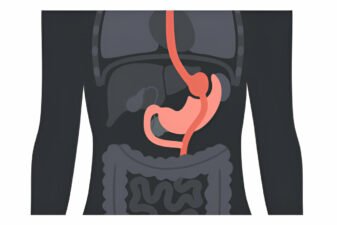Resorting to non-prescription diet supplements to manage weight may sound a little crazy, until you consider the huge recent rise in obesity and obesity-related disease.
The Problem of Overweight
According to recent figures from the US government, an estimated 58 million American adults are overweight, while 40 million are obese (BMI 30+) of which 3 million suffer from life-threatening (morbid) obesity. In terms of health danger, the US Surgeon-General has stated obesity to be second only to cigarette smoking, while experts consider it to be a causal factor in the 75 percent increase in Type 2 diabetes among adults aged 30-40 years, since 1990. In view of these grim statistics, it’s hardly surprising that more and more people are turning to pills and supplements to reduce weight.
Do Supplements Lead to Weight Reduction?
According to clinical weight loss trials (of which there are few), non-prescription supplements (unlike weight loss drugs) do not lead to significant weight reduction over and above that which might be expected from a combination of diet and exercise. In short, taking a dietary supplement in order to lose weight is likely to be a waste of money.
The Importance of Clinical Weight Loss Trials to Test Supplements
If a person (1) takes a supplement, (2) follows a calorie-controlled diet, (3) takes regular exercise, and as a result loses weight, what exactly causes this weight reduction – is it the pill, or is it the diet and the exercise? It’s impossible to say exactly. This is why a clinical test is so important. In a typical clinical trial, there are at least 2 groups, both of which follow the same diet and exercise program, but only one group is given supplements, while the other is given non-active pill substitutes (placebos). The weight loss results of each group are then compared, which allows researchers to measure the precise effectiveness of the supplements being tested. Unfortunately, most pill-manufacturers do not submit their products for testing in this manner. Here are some details of three weight loss trials which did take place.
Clinical Trials of Ephedrine/Ephedra
According to a report in the journal Obesity Research (1995), supplements containing ephedrine combined with caffeine helped very overweight patients (BMI 30+) who followed a strict diet to lose an extra 7.5 pounds over six months. That’s an average of 4 ounces of weight loss per week.
Clinical Trials of HCA
HCA, or hydroxycitric acid, is an herbal extract commonly found in weight-loss supplements. HCA supposedly reduces appetite and slows down conversion of carbohydrates into fat. But in a study published in the Nov. 11, 1998, issue of the Journal of the American Medical Association, researchers from Columbia University gave HCA herbal diet supplements (1,500 milligrams each day) to 66 overweight patients. Unfortunately, HCA failed to produce any significant weight loss.
Clinical Trials of Pyruvate
Makers claim pyruvate is a natural alternative to obesity drugs such as phentermine and fenfluramine (phen-fen), but the International Journal of Sports Nutrition calls such statements misleading. Also, in one of the few human studies of pyruvate, researchers at the University of Pittsburgh Medical Center found that overweight patients who took pyruvate lost an average of 2 ounces of extra weight per week, compared with patients who took a placebo.
Do Supplements Provide Psychological Support to Lose Weight?
Might supplements provide a little extra psychological support for people who find it difficult to lose weight by diet and exercise alone? It’s possible, Yes. However, when you consider the price and possible side effects of some of the more popular weight loss supplements, it’s probably better to look for healthier and cheaper options.
Real Support to Lose Weight
Joining my weight loss community is a lot healthier and a lot more effective than buying a bottle of pills. For details, click: Weight Loss Forum











